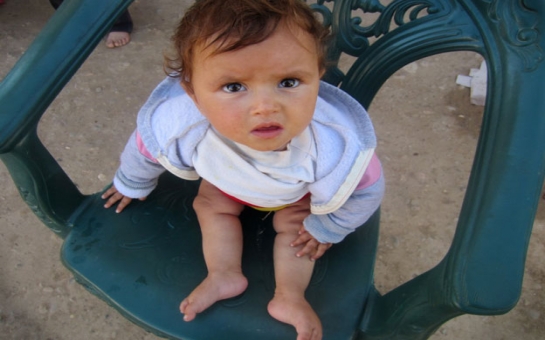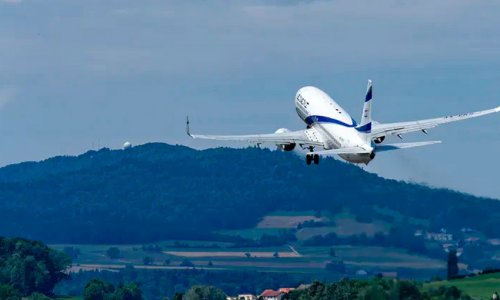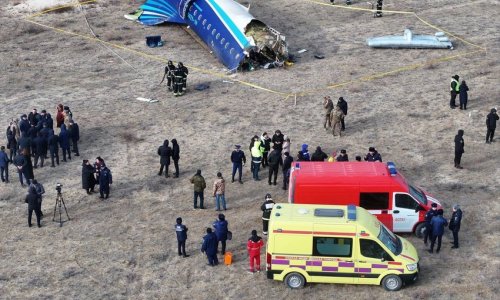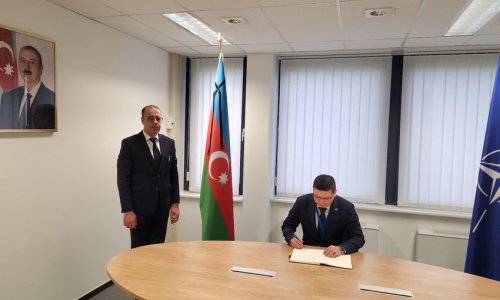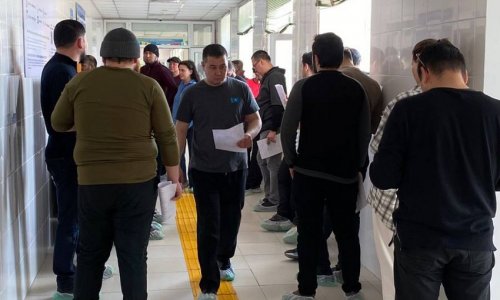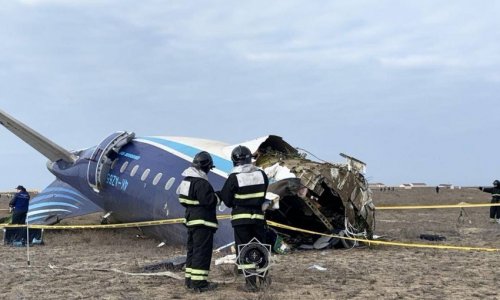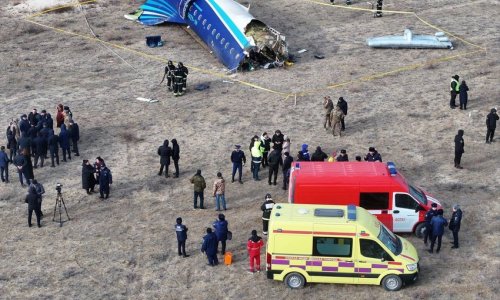As summer approaches, health agencies are warning of the risk of polio spreading across the Middle East from Syria - where now more than 100 children show symptoms of the disease - despite a massive campaign to vaccinate millions of children in surrounding countries.
In the back of a car parked outside a Turkish hospital, the shy woman in a long pink velvet dress starts sobbing as she talks about her baby, being treated in an isolation ward inside.
"He started to get really sick. I tried to make him stand and use his feet, but it was quite impossible," she says. "Now he can't move them any more."
Muhammad, aged five months, her only son, has just been diagnosed with polio. One of the most contagious and feared diseases of the 20th Century, it has paralysed thousands of children. A global vaccination campaign eradicated it almost everywhere, including in Syria, where Muhammad comes from. But now, because of the war there, it's back - sparking panic across the Middle East, and despair in Muhammad's family.
His parents have brought him across the border to Turkey for tests. But they don't want their names used, for fear of angering the authorities. Turkey doesn't want it known that there are any polio victims in the country.
"We know he is going to be paralysed his entire life; he is not going to be able to do anything," says his father, a desperately poor labourer from the north-western province of Idlib.
Syria was declared free of polio in 1999. But the disease re-emerged last year, after two years of conflict. The World Health Organization (WHO) says there are now 25 laboratory-confirmed cases in the country, with another 13 confirmations pending. But Syrian doctors put the number of children with clinical symptoms of polio much higher, at at least 110. And for every victim, there are at least 200 people - some doctors say up to 1,000 - carrying and spreading the virus.
"Suddenly to find a very old disease affecting children that we had only heard of on the news - we were completely in shock," says Dr Basel al-Khader of the charity hand in Hand for Syria that brought baby Muhammad to Turkey for the tests.
"It's worse than shelling because it's a silent killer. It's not like an aeroplane overhead or an explosion you can avoid. It comes from the water."
The polio virus lives in water, contaminated food and sewage. It was first rediscovered in one of Syria's least-developed provinces - Deir ez-Zor, in the east, where the infrastructure needed to provide electricity and clean water has been largely destroyed.
Dr Bashir Taj al-Din, a Syrian doctor who shuttles back and forth across the border from Turkey says: "The people there live along the Euphrates river and they drink directly from it. There are no water treatment stations working, the sewage goes straight into the water."
Vaccination rates in Syria fell from 91% of children before the war to an estimated 68% in 2012. But those are national figures. In rebel-held territory, where all the polio cases so far have occurred, immunisation levels are much lower. The Syrian government says it has continued to vaccinate across the country during the conflict - a claim supported by the WHO, but disputed by many Syrian doctors and foreign health experts. They believe the regime withheld vaccine from clinics in the rebel-held north as another means of waging war on civilians.
Annie Sparrow, an American paediatrician who travels regularly to monitor the outbreak, says: "Put together the attacks on doctors, the destruction of the health system, and the denial of vaccines to areas considered politically unsympathetic or areas outside government control, and here we have a man-made outbreak."
She's accused the WHO of playing down the scale of the epidemic - and reacting too late. It only issued an international alert last October, though the first reports of a paralysed child in Aleppo had come in July - and the virus, from Pakistan, was first found in the Middle East - in Cairo - in December 2012.
"It missed the outbreak for many, many months and has not been able to demonstrate that it has vaccinated kids effectively," she says.
The WHO's assistant director-general Bruce Aylward describes that allegation as "absolute rubbish." He says: "There have been multiple immunisation campaigns in 2011, and again in 2012, recognising that immunisation rates were dropping."
But he admits the WHO's "hands are tied in terms of direct cross-border support". As a UN agency, it must work with governments and is not allowed to deliver vaccine directly to rebel territory across the Turkish border.
Now, since the outbreak, that task is being carried out by Turkish-based Syrian doctors, funded by the Turkish government. They have 8,500 volunteers, who aim to go door-to-door to vaccinate 1.5 million children. But it's dangerous work. Two vaccinators have been killed; another had her leg blown off. And there are 800,000 people living in areas cut off by fighting that the medical teams can't reach.
All round the borders of Syria, governments and UN agencies have now mounted a massive campaign to immunise 22 to 23 million children, in an attempt to prevent polio being spread by the flood of refugees from Syria.
Lebanon, with more than a million refugees, many unregistered, and a creaking health system, is perhaps most at risk.
In the Beka'a valley, the UN children's agency Unicef is distributing vaccines in one of the "informal tented settlements" where most refugees live - groups of shacks thrown together from sheets of metal, polythene and wood, with no sanitation or running water.
Dr Melhem Harmouche, in charge of the team, admits there's no list of all refugees. "We have no official border," he says. "They come and go as they like." He says "it's impossible to be sure" that all refugee children have been vaccinated.
Meanwhile, a few miles away, amid another group of makeshift huts, children pull up dirty brown water from an unlined well that's just a few metres downhill from a pit latrine. They use it for washing and even, they claim, for drinking. "What is the point of vaccine if children don't have basic drinking water or a proper sewage system?" asks one refugee, Muhammad, from Damascus.
Doctors recognise that vaccination - particularly if children receive fewer than the recommended six doses - may not be a 100% guarantee against infection if a child's immunity is lowered through malnourishment, living in overcrowded conditions, and using contaminated water.
Meanwhile, summer is approaching - the season when polio usually peaks. The WHO has said there's a "very high risk" it will spread further within Syria, and across its borders. As well as Lebanon, Iraq and Jordan are also potentially at risk, and even Turkey, though most of its refugees are in organised camps and vaccination is well organised.
Baby Muhammad and his parents have now returned to Syria, but not to their village. It's being shelled, so they've had to seek refuge in a displaced people's camp.
Little Muhammad's had some physiotherapy. A little movement's returning to his arm. But his parents fear it's only temporary. The treatments that have helped children recover completely from polio in other countries aren't available in Syria now. His father believes the war has ruined the family's life for ever.
"What future can I talk about?" he asks. "Probably I would say my son would have been my future. But now his future has ended, and that ended my future also."

